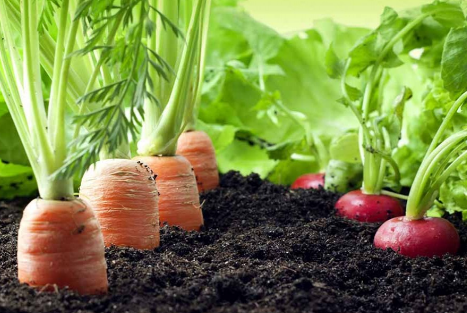“Despite the push given to it through periodic pronouncements from India’s leaders, the country’s efforts to upscale non-chemical farming practices have largely remained half-hearted at best. Centre for Science and Environment’s (CSE) new report on the subject presents robust evidence which makes it clear that we can upscale organic and natural farming.
It is time to invest adequately in a well-funded nation-wide programme for this”: said Sunita Narain, director general, CSE here today. She was releasing CSE’s report — Evidence (2004-20) on holistic benefits of organic and natural farming in India – at an online event here today. The report had a ‘community’ release — representatives of the community which has been practicing or promoting organic and natural farming across the country joined in to release it along with Narain
The Finance Minister has made a pitch for promoting chemical-free natural farming, and has encouraged states to revise the syllabi in their agricultural universities keeping in line with this new push. “But,” says Amit Khurana, programme director, Sustainable Food Systems programme, CSE and co-author of the CSE report, “these are relatively small steps compared to the need of the hour, and especially after the prime minister’s appeal in December to make natural farming a mass movement.”
Khurana adds: “Hopefully, our new report, which highlights that there is strong long-term evidence that organic and natural farming is not only profitable and sustainable but also productive, will propel the country to invest more adequately to upscale and encourage such a mass movement.”
What the report presents
The report presents evidence collected and collated on aspects such as crop yield; cost of cultivation, income and livelihood, soil health and environment, and food quality and nutrients. It is based on two sets of sources:
- Results of the All-India Network Project on Organic Farming (AI-NPOF), 2004-19 — The project is currently being implemented across 20 centres in 16 states. The report compares results of three approaches — organic, integrated (which partly involves chemicals) and inorganic (dependent on chemicals).
- About 90 scientific studies on organic and natural farming published during 2010-20 in India – these collectively add to and complement the overall evidence.
The report makes a clear case to consider the holistic benefits of organic and natural farming, such as those related to livelihoods, soil health and environment (instead of only yield) in future policies and programmes. Specifically, through the AI-NPOF results, it presents long-term evidence on how benefits of organic approach outweigh that of inorganic approach (and also integrated approach to a large extent), with respect to profitability parameters such as net returns and soil health parameters like organic carbon, macronutrients, micronutrients, bulk density and rhizosphere microbial population.
“It is surprising how the results of the government’s own All India Network Project on organic farming, which has been present in the public domain for the last several years, did not get the required attention. It is also a concern how the entire issue so far has focused on yields and not on livelihoods and soil health benefits,” says Khurana.
“It is evident that organic approach has fared better than integrated on profitability and sustainability and is almost at par with it in the case of productivity,” points out Abhay Kumar Singh, programme manager, Sustainable Food Systems Programme in CSE and a co-author of the report.
Concluding the discussions at the release of the report, Narain said: “We now know that there are enough reasons to upscale organic and natural farming. We hope that the larger scientific community and policymakers recognise the strong case that we now have to transform the non-chemical farming initiatives in our country into a mass movement.”



